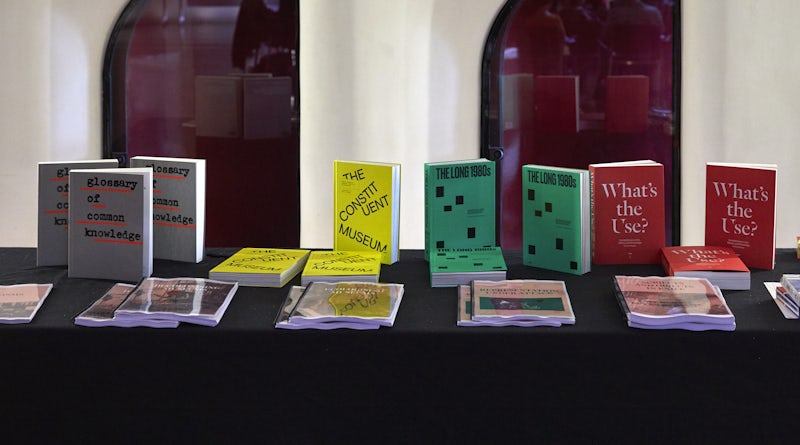L’Internationale

L’Internationale, the confederation of major European museums, art institutions, research centres and think-tanks, takes its name from the workers’ anthem calling for an equitable democratic society, and references the historical labour movement. In learning from local and shared histories, L’Internationale focuses on what is to come, in imagining, developing and implementing new visions for a future that will be just, democratic and sustainable for everyone, planetwide.
Over the coming four years, L’Internationale will implement Museum of the Commons (2023–2026), a project granted €2,000,000 by the EU Creative Europe programme. During this period, the confederation will comprise 14 institutions: Museo Reina Sofía (Spain), MACBA (Spain), M HKA (Belgium), MSN (Poland), Salt (Turkiye), Van Abbemuseum (the Netherlands), MSU (Croatia), Haus der Kulturen der Welt (Germany), HDK-Valand (Sweden), NCAD (Ireland), ZRC SAZU (Slovenia), Institute for Radical Imagination (Italy), Tranzit.ro (Romania), Visual Culture Research Center (Ukraine), and two associate partners; IMMA (Ireland) and WIELS (Belgium), along with the L’Internationale Association.
Museum of the Commons weaves together three transversal thematic threads corresponding to key challenges contemporary societies are facing: 1) Climate; 2) Situated Organisations; and 3) Past in the Present. The Climate thread tackles issues of the current planetary climate crisis, the sustainability of institutional, artistic and cultural practices and processes, and the urgency of transforming more ecologically our politics, societies, cultures and ways of life. The Situated Organisations thread queries the role of museums and art organisations as actors in complex social networks and ecosystems, to seek new ways of democratising institutions and to render them more open, inclusive and useful. The final thread, Past in the Present, focuses on the crucial roles our local and shared histories hold in constituting contemporary identities, politics, societies and cultures, investigating the persistence and long-lasting impact of historical and current environmental and colonial violence, including Russia’s war against Ukraine and the crisis along the Turkish-Syrian border. In doing so, the confederation seeks to mobilise art and culture as strategic tools in processes of healing, reconstruction and repair of damage that has been inflicted.
These thematic threads will guide the content of L’Internationale activities, from exhibitions to nomadic schools, artist residencies and community workshops. They explore contemporary models of sustainable cultural production and propose frameworks for new forms of cultural co-creation, contributing to environmental, social and artistic transformation. The confederation undertakes multiple actions in directly supporting artists, culture workers and refugees living with the impact of global conflicts, while supporting international solidarity among European institutions and contributing to the future recovery of the cultural sector and of society at large.
Funded by the European Union. Views and opinions expressed are however those of the author(s) only and do not necessarily reflect those of the European Union or the European Education and Culture Executive Agency (EACEA). Neither the European Union nor EACEA can be held responsible for them.


